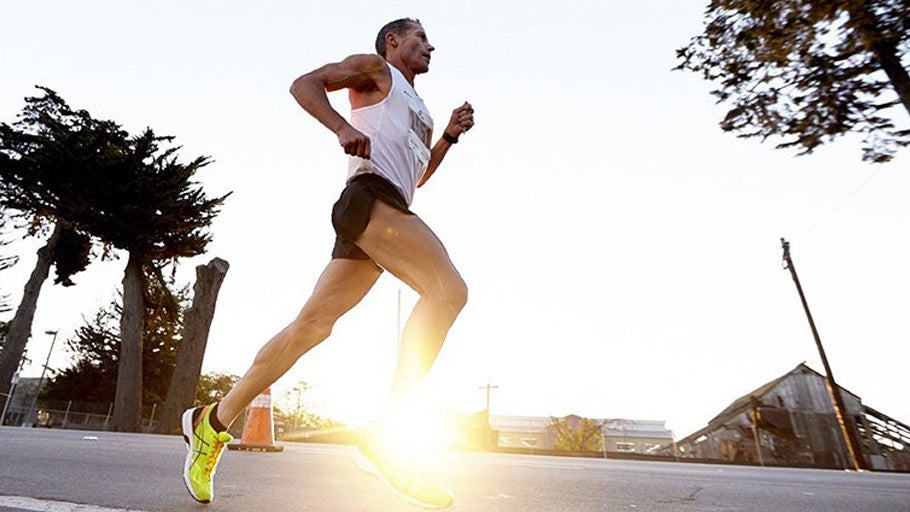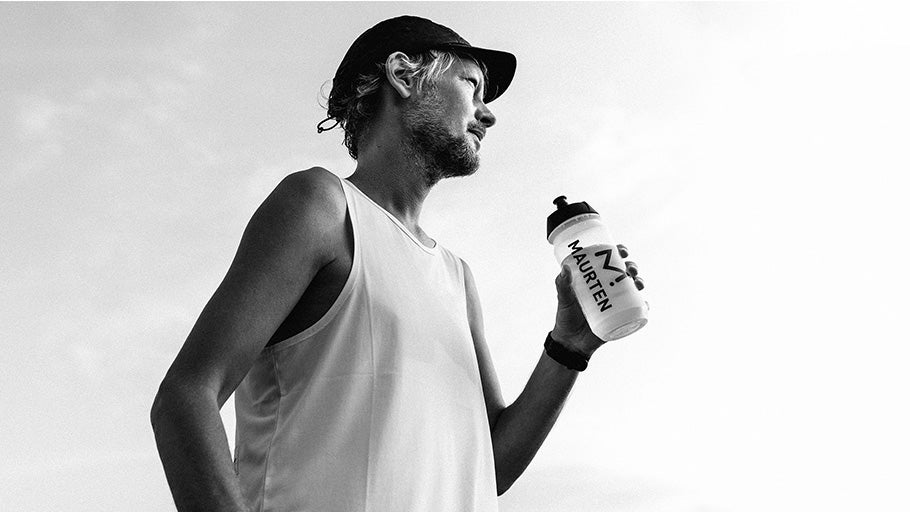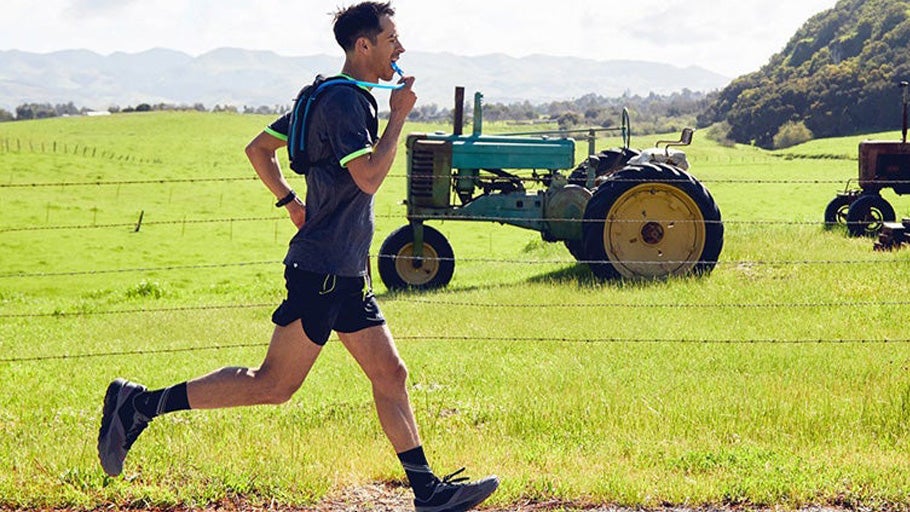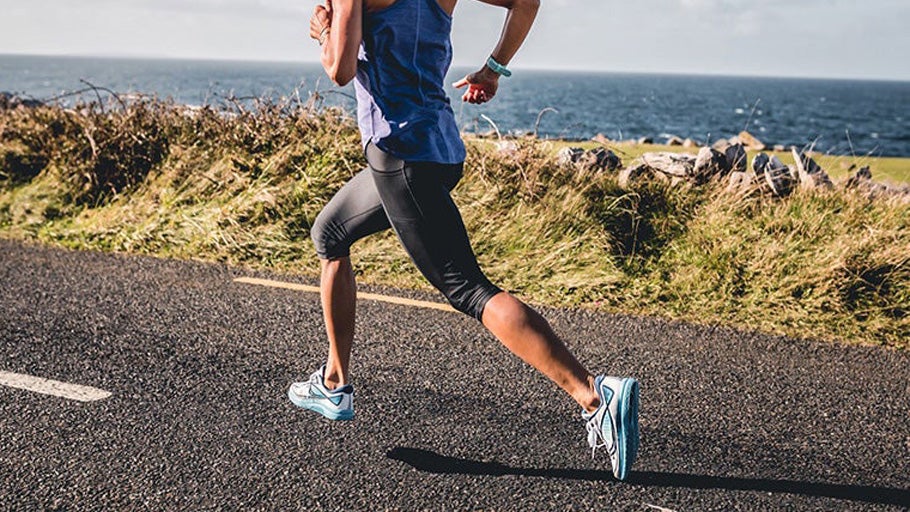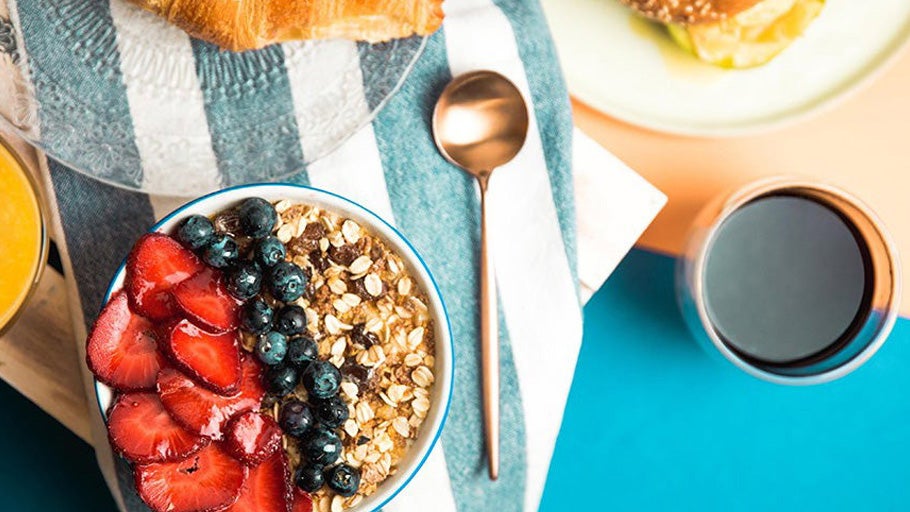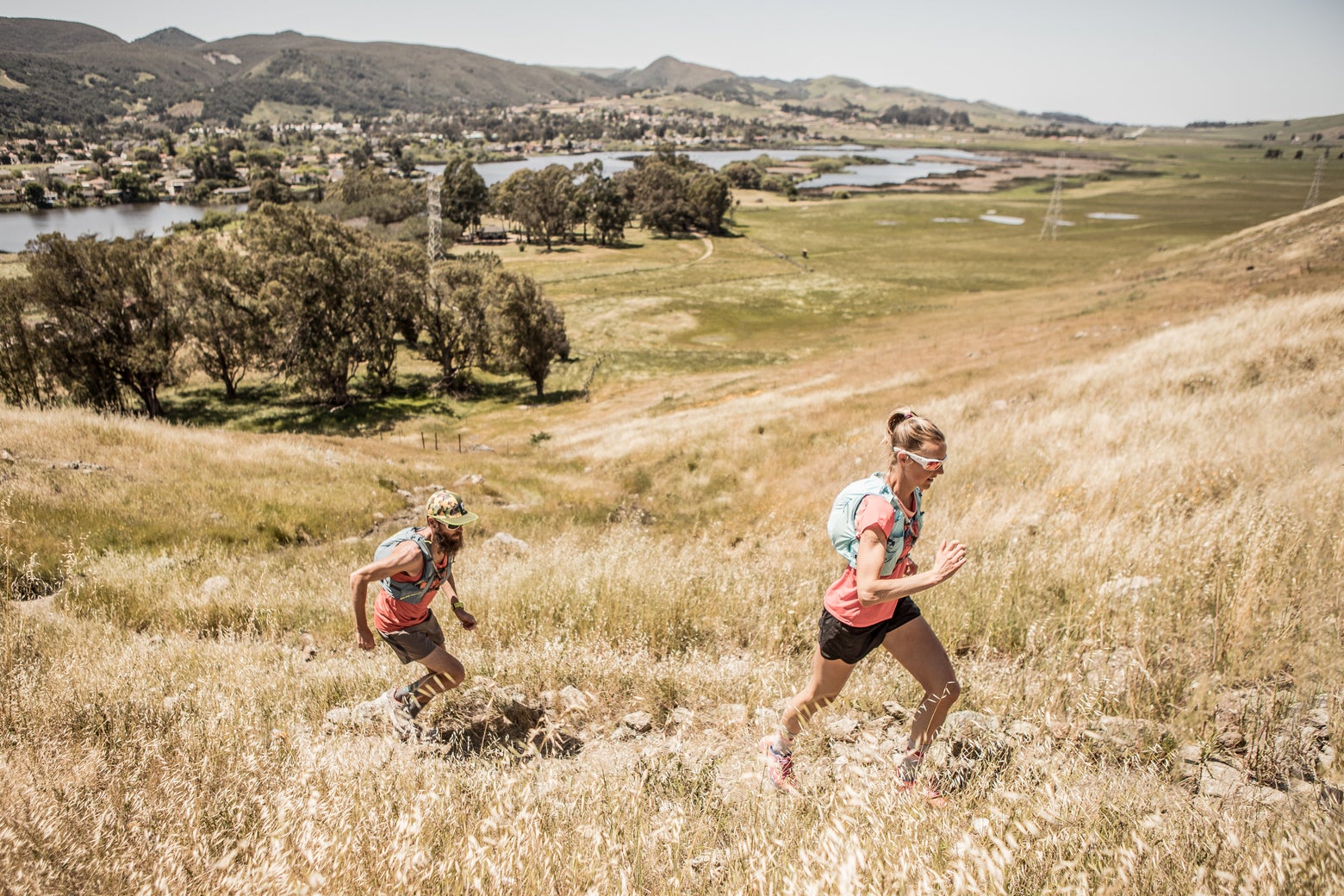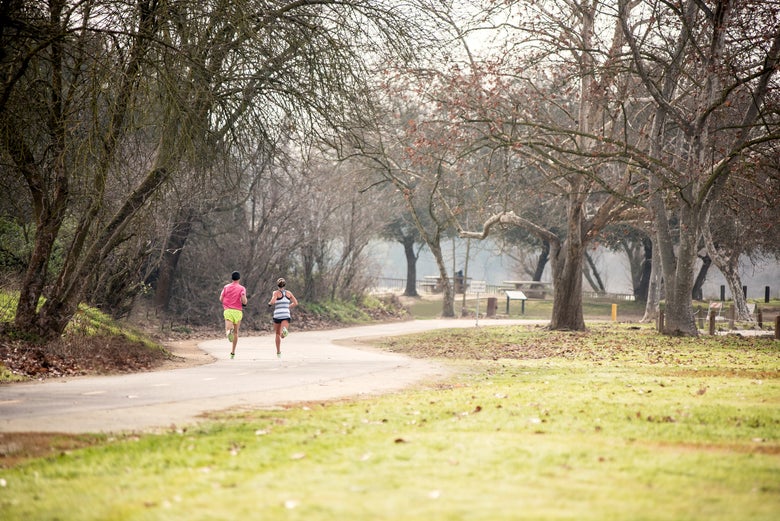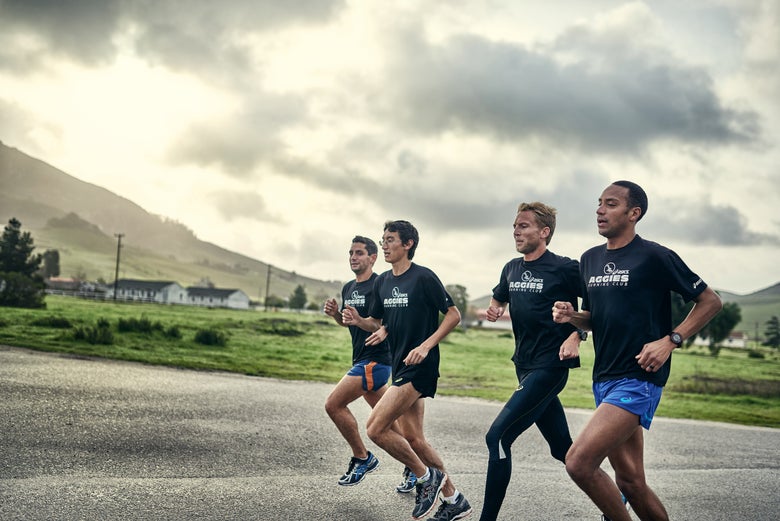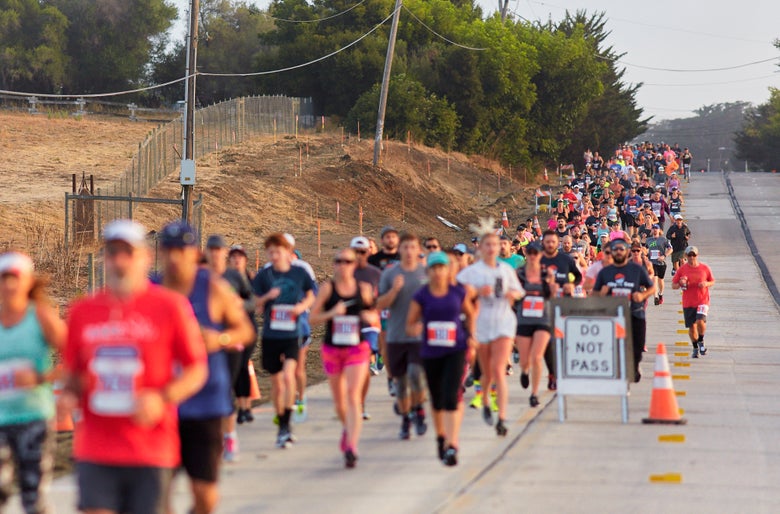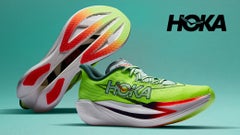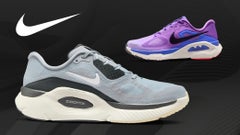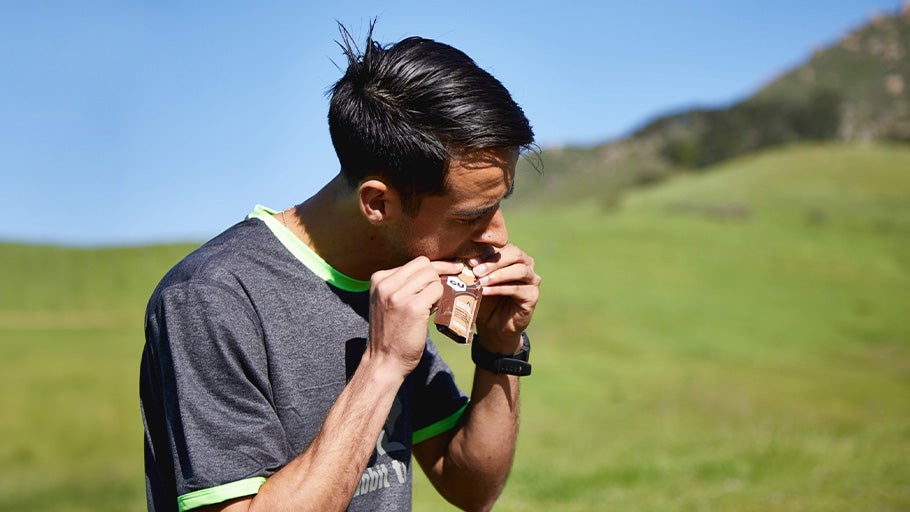
What to Eat Before a Race
While there's no magic elixir that can give you the abilities of Bolt or Kipchoge right before a race, there are plenty of nutritional tips that will prepare your body to perform at its best. In prepping for an event, you should be putting as much thought into your nutrition as your workouts. Whether you're gearing up for a track and field meet, cross country event, marathon, or just a good hard run, you will want to fuel your body appropriately for the effort.
Race Day Nutrition: What Runners Should Eat Before a Race
What to eat before a race can make a big difference in your performance. For runners, focusing on carbohydrates, protein and healthy fats in your pre-run meals helps fuel your muscles, maintain energy levels, and protect against muscle breakdown. Planning your nutrition the right way ensures you have the stamina to finish strong.
Carbohydrates and Glycogen: The Fuel for Your Race
When it comes to an endurance exercise like running, carbohydrates provide the most readily available form of energy for our bodies. Our bodies use glucose from carbs to help fuel our muscles so that we can continue to perform throughout our runs.
The glucose that is stored in your body is called glycogen. Unlike fat, which can be amassed in the body in almost unlimited quantities, glycogen has limited available storage in the body. Glycogen is kept primarily in your muscles and in your liver, accounting for only about 1 to 2% of your total energy stores.
A hard workout can quickly deplete glycogen levels, which could lead to fatigue and weakened performance. To avoid this, it is important that your glycogen stores are topped off before a race and your muscles have enough available glucose to get you through your event.
Protein: Protect Your Muscles and Boost Run Performance
After roughly 90 minutes of exercise, glycogen stores in the body can become completely depleted, which can lead to muscle cannibalization. In this process, the body converts lean muscle tissue into additional glucose, which can lead to muscle soreness, stiffness, or, in more extreme cases, injury.
This is why eating small amounts of protein is so important for longer runs. Protein combined with carbohydrates in your pre-run meal can reduce tissue cannibalization and increase muscle protein synthesis, leading to prolonged and improved performance.
Fats: Long-Lasting Fuel for Endurance
Glycogen is the body's main fuel for short, high-intensity workouts, but it also relies on fat during longer or less intense runs. While you don’t necessarily want to chow down on a stick of butter before running, including small amounts of healthy fats such as avocado, almonds, or nut butters in your pre-run meal can provide lasting energy for longer efforts.
Fiber: Keep Digestion Comfortable on Race Day
Including high-fiber foods in your normal daily diet is healthy and can support the overall well-being of the intestinal tract. However, when it comes to pre-race nutrition, you’ll want to avoid eating large quantities of fiber, as it can lead to unwanted gastrointestinal distress like gassiness, bloating, and diarrhea, which can derail any race.
How Much to Eat Before a Race and When to Eat
The food you eat before a race affects your performance, but so do timing and portion size. Use your practice runs to experiment with how much and when to eat. This helps you discover the best pre-race meals for your needs and maximize race-day performance
How Much To Eat Before a Race
When considering how much a runner should eat before a race, balance is the main focus. Eating too much or not eating at all before a race will have tremendous adverse effects on your performance. The total quantity of food a runner should eat before a race is a bit of a Goldilocks situation—you don’t want too little or too much, only what is just right. During training, test different foods and portions to discover the pre-race meal that fuels you best.
- Pre-race meal: 400–700 calories, primarily from carbohydrates.
- Pre-race snack: 100–200 calories, carb-rich, eaten closer to race time to top off energy stores.
When timed correctly, these meals provide ample energy to help you perform your best on race day.
When to Eat Before a Race
The timing of your pre-race meal and pre-race snack is also about balance. Finding that "just right" time to eat is crucial to maximizing available energy and avoiding GI distress. A good rule of thumb for timing is to aim for the following:
- Larger meal: 2-4 hours before your race
- Pre-race snack: 30-60 minutes before the start of your race
These timing windows give your body enough time to digest and absorb nutrients. To get the most from your race-day nutrition, experiment during training to find the ideal portions and timing that work best for your body.
How to Hydrate Before a Race
Proper hydration is a critical part of race-day nutrition. Without enough fluids, runners may experience reduced muscle strength, stamina, and overall energy. Dehydration also increases the risk of injury. That’s why having a hydration plan leading up to your race is essential. Some hydration guidelines to follow are:
- Leading up to the race: Drink plenty of fluids. Your urine should be light-colored but not clear.
- 2 hours before the race: Drink about 16 oz of water or a sports drink.
- 30 - 60 minutes before the race: Drink another 10 to 16 oz of fluids.
Sports drinks and hydration mixes can further hydrate athletes and provide runners with additional electrolytes and carbohydrates. Keep in mind that hydrating before a race also needs to be properly balanced in regards to timing and quantity. Too little hydration can lead to early fatigue (or "bonking"), while too many fluids can flush much-needed electrolytes out of the system and cause stomach discomfort. Much like nutrition, practice your hydration strategy during your training to figure out the timing and the amount of fluid that works best for you.
Frequently Asked Questions
Is carb-loading necessary before every race?
Carb-loading is most beneficial for races lasting 90 minutes or longer, like marathons and half-marathons. For shorter races, a balanced diet with moderate carbs the day before is usually sufficient.
Can I eat during a race if I get hungry?
For runs longer than 60 to 90 minutes, replenishing carbs becomes important. Consume quick carbs such as energy gels, chews, or sports drinks to maintain energy and prevent fatigue. If you plan on eating during a race, practice your strategy during training to avoid an upset stomach!
Are coffee and caffeine okay before running?
Yes, moderate caffeine can boost alertness and endurance. Have your usual morning coffee or a caffeinated gel about an hour before the race but, just like with nutrition, test it during training to make sure it works for you.
What's the best pre-race meal for sensitive stomachs?
For sensitive stomachs, choose bland, low-fiber foods on race day such as white rice, applesauce, toast with honey, or a plain bagel. Avoid dairy and high-fat foods, as these are common triggers for stomach discomfort.
What should I eat before a cross country race?
For cross country runners, following the guidelines listed above can help set you up for success on race day. Prioritze carbohydrates to replenish glycogen, include light protein to support muscle recovery, stay properly hydrated, and always practice your nutrition plan before race day.
Eating Before a Race: Fuel Properly and Run Your Best
Proper pre-race nutrition gives your body the fuel it needs to perform at its best on raceday. Stick to the pre-race meals, snacks, and hydration strategies you’ve practiced during training, and avoid last-minute changes that could upset your stomach or energy levels.
Eating the right balance of carbohydrates, protein, and fluids at the correct times ensures your muscles are fueled, your energy stores are topped off, and your body is ready to go from start to finish. Trust your race-day fueling plan, stay consistent, and you’ll be prepared to cross the finish line feeling strong and confident.

